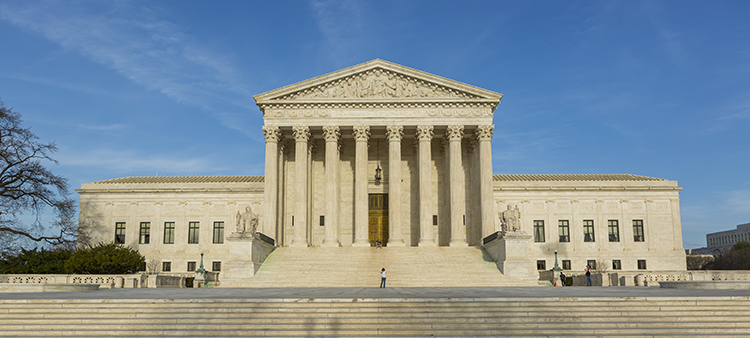CAFC affirms dismissal of APA and FTCA claims in patent case
“Ms. Winfrey fails to present any evidence that she filed a petition with the USPTO to revive her application or challenge its abandonment determination.” – CAFC opinion
On Wednesday, the U.S. Court of Appeals for the Federal Circuit (CAFC) issued an opinion affirming a district court’s decision to grant the U.S. Patent and Trademark Office’s (USPTO) motion to dismiss for failure to state a claim in a contested patent case.
Appellant/Plaintiff Eula Winfrey had initiated the claim in the U.S. District Court for the Middle District of Georgia, seeking “relief for the issue of two pillaged patents” as well as damages from the USPTO. The pro se argument was construed as having asserted claims under the Administrative Procedure Act (APA) and the Federal Tort Claims Act (FTCA), respectively.
Winfrey’s claim stemmed from the USPTO’s denial of her two patent applications, one for the “step up diaper,” and another for the “stroller buddy,” which, after allegedly failing to exhaust the proper administrative remedies, were deemed abandoned by the USPTO.
The district court granted the USPTO’s Rule 12(b)(6) motion to dismiss for both claims. The district court granted the USPTO’s Rule 12(b)(6) motion to dismiss both claims. SS 2675(a). Additionally, Winfrey was estopped from bringing a claim due to a prior district court action dismissing the same claim under the APA.
The FTCA Claim
Winfrey’s original complaint sought monetary damages for the alleged “pillaging and unethical practices that have taken place within Patent Office walls.” The CAFC quickly affirmed the lower court’s dismissal. It noted that “nowhere in any of her extensive filings before this court do we find evidence that Ms. Winfrey filed the requisite administrative claim to bring a claim for money damages against the USPTO.” Thus, since the correct procedural requirements were not followed, the claim was dismissed.
The APA Claim
The complaint also alleged that the USPTO improperly denied her two patent applications and incorrectly deemed them abandoned. The district court dismissed Winfrey’s claims as barred by collateral estoppel, citing Miller’s Ale House, Inc., v. Boyton Carolina Ale House, LLC. :
We apply issue preclusion when (1) the issue at stake is identical to the one involved in the prior litigation; (2) the issue was actually litigated in the prior suit; (3) the determination of the issue in the prior litigation was a critical and necessary part of the judgment in that action; and (4) the party against whom the earlier decision is asserted had a full and fair opportunity to litigate the issue in the earlier proceeding.
Since each claim had been dismissed in Winfrey II because Winfrey failed to exhaust the proper administrative remedies, the CAFC affirmed the application of the collateral estoppel doctrine and dismissed the two claims.
With regards to the alleged abandonment, the CAFC found that Winfrey “failed to present any evidence that she filed a petition with the USPTO to revive her application or challenge its abandonment.” Thus, she once again failed to exhaust the requisite administrative remedy, and the argument stalled.
Lucas Thrun
Lucas Thrun, a recent Gonzaga University School of Law graduate, earned his Juris Doctorate in May 2024. During his time as a student at Gonzaga University, he interned for the Washington







